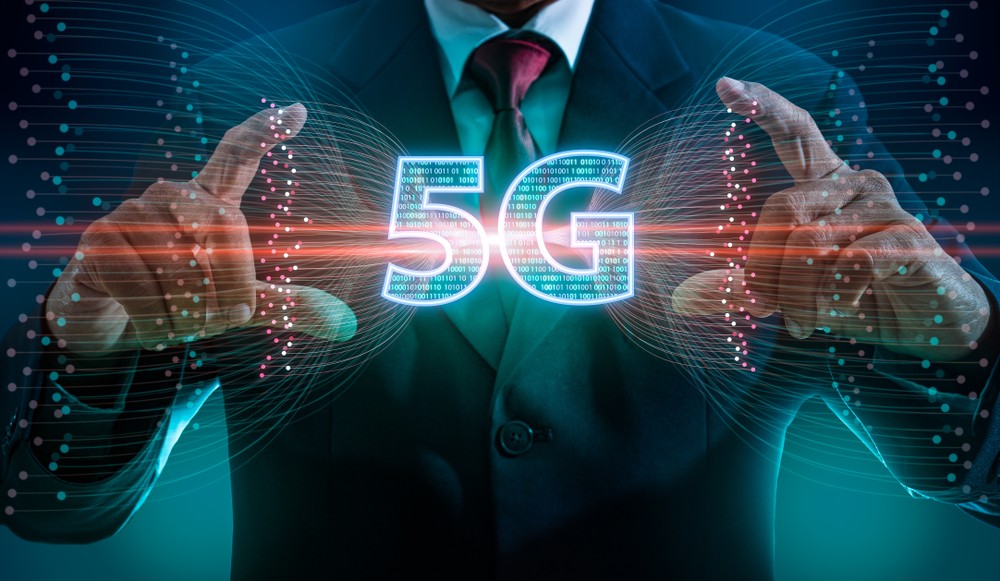Vodafone and Ericsson have completed the first deployment of a new 5G radio that saw energy consumption decrease by a daily average of 43%, and as much as 55% at off peak times.
Vodafone will now deploy 1,500 of the new units by April 2022, enabling an environmentally responsible 5G deployment strategy.
The Ericsson antenna-integrated radio solution (AIR 3227) was deployed on the roof of Vodafone’s Speechmark office, in Southwark, Central London. Comparing the performance of the equipment directly to the previous generation of technology, Vodafone’s controlled trial saw energy consumption decrease by a daily average of 43%, and as much as 55% at off peak times. Deployment of the new equipment will help reduce Vodafone’s forecasted energy consumption of its future 5G network. Vodafone is committed to deploying 5G in the most energy efficient, responsible and sustainable manner possible, and the inclusion of the AIR 3227 will help avoid unnecessary energy consumption as customer demand goes up and more equipment to deliver 5G connectivity is added to the network.
Designed for future-proof and sustainable networks, the new radio is 51% lighter than the previous generation and its more compact design and improved energy management features will help to minimise overall site footprint, making 5G rollout and 4G upgrades quicker and easier.
Andrea Dona, Chief Network Officer, Vodafone UK, said: “Our strategy is simple; turn off anything we don’t need, modernise our network where possible, and use the most energy efficient options available without compromising the service we deliver to our customers. The success of this trial allows us to explore new ways we can more effectively manage the energy consumption of our network with our partner Ericsson. There is no silver bullet for managing network energy consumption – it is about putting sustainability at the heart of every decision and adding up all the small gains to make a material difference.”
Björn Odenhammar, CTO, Networks & Managed Services, Ericsson UK & Ireland, said: “Building on the success of an award-winning 5G network in London, it is another fantastic achievement for Vodafone and Ericsson to reduce network energy consumption by a daily average of 43%. Sustainability is central to Ericsson’s purpose and our industry-leading new radios will help Vodafone to reduce network energy consumption, simplify network rollout and efficiently manage the expected growth in data traffic of both current and future 5G networks. Together we are building the 5G network of the future – one that delivers the highest possible performance with improved resource efficiency and low environmental impacts.”
Vodafone and Ericsson using drones to limit environmental impact
As well as improving the energy efficiency of sites, Vodafone has also been trialling drone technology to minimise the environmental impact of essential sites surveys for maintenance and upgrades.
In partnership with Ericsson, Vodafone has been trialling the collection of measurement and visual data via drones with HD-mounted cameras, and LIDAR to collect millions of datasets to build a digital twin of the site. Instead of sending several engineers to the site, sometimes more than once, data and imagery can be collected by one specialist drone operator. By reducing the number of people travelling, often to remote and difficult to reach locations, Vodafone’s impact on the environment can be reduced.
This update follows Vodafone’s recent announcement confirming that its entire operation – including its mobile and fixed networks, data centres, retail stores and offices – is now 100% powered by electricity from renewable sources. This is an important next step in its commitment to achieve net zero for its UK operations by 2027 and across its full carbon footprint, globally, by 2040. Vodafone has also committed to help its business customers to save 350 million tonnes of CO2e globally by 2030. Over the last year, it estimates that around 54% of its 123 million IoT connections directly enabled customers to reduce their emissions.
Vodafone reinforces 4G network with additional 900 MHz spectrum
Vodafone is undertaking a project to make the best and most efficient use of spectrum and energy resources. 10 MHz of 900 MHz spectrum that previously provided 3G services has been refarmed to support 4G. The spectrum can be transitioned to support 5G using only a software upgrade, as customer demand grows.
This contiguous block of 10 MHz of spectrum has been deployed across multiple sites in London, with hundreds more to follow. The project to restructure and reallocate spectrum in the 900 MHz band will double low band capacity for customers, improving the 4G experience and reliability of the network. The reallocated 4G spectrum will also be complemented by deployment of Massive MIMO antenna, further enhancing customer experience.
Additional capacity has been added to ensure a reliable and consistent 4G experience today, as well as building in room for growth. Over the last 12 months, Vodafone saw 4G traffic on its network grow by more than 40% year-on-year, a trend which is expected to continue for the coming years. 3G data usage has declined rapidly, from more than 30% of total traffic in 2016 to less than 4% today.
A dedicated block of 900 MHz spectrum will be retained for 2G and 3G services.
Andrea added: “Spectrum is a finite and valuable resource for the digital world, and therefore we have to be very careful how it is deployed. As 3G traffic continues to fall and 4G traffic continues to rise, repurposing this block of low band spectrum gives a great customer experience in the most efficient way possible. And we have outlined a roadmap which enables us to pivot to 5G to stay ahead of customer usage. Across our network, we’re deploying technology in the most efficient and sustainable manner possible, while ensuring a great customer experience with the highest levels of reliability.”




